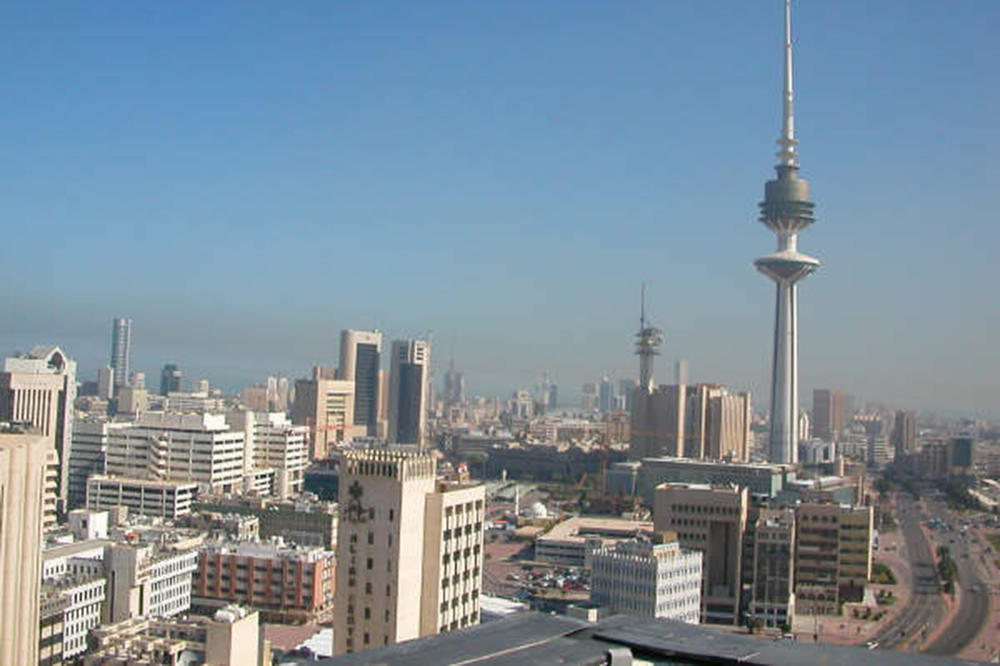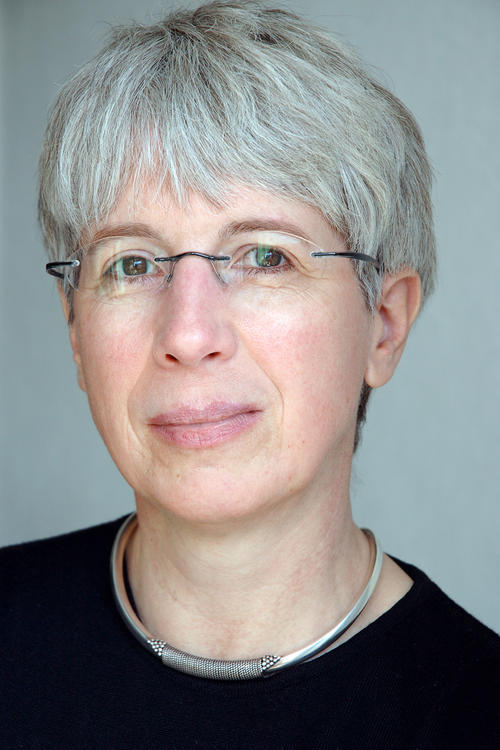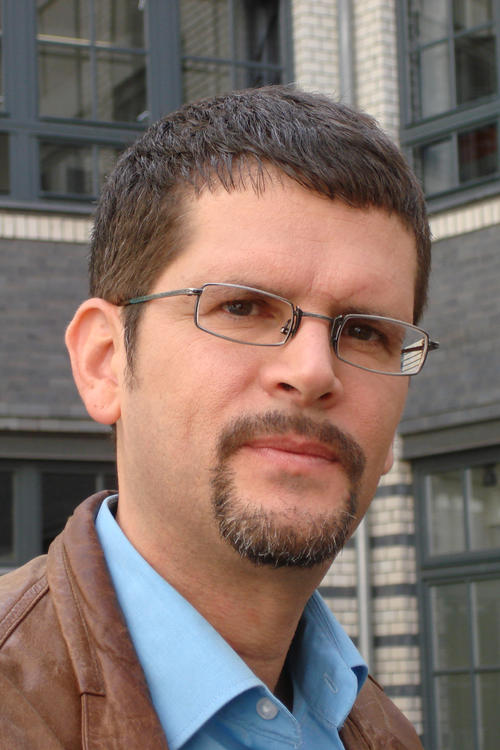Researching Islam around the World
The Berlin Graduate School Muslim Cultures and Societies has been educating doctoral students for ten years. The training also includes a focus on topical issues.
Jun 21, 2018
The impact of social change on architecture and public space in Kuwait City is one of the topics being researched by doctoral students at the graduate school
Image Credit: Wikimedia Commons, Deepak, CC BY-SA 3.0
The Berlin Graduate School Muslim Cultures and Societies (BGSMCS) is celebrating its tenth anniversary. Within the framework of a three-year doctoral program by Freie Universität Berlin, Humboldt-Universität zu Berlin, and the Leibniz-Zentrum Moderner Orient, doctoral students deal with the diversity and changeability of Islamic societies and cultures. An interview with Gudrun Krämer, a professor of Islamic Studies, and Hansjörg Dilger, a professor of social and cultural anthropology, both at Freie Universität Berlin, who together head the BGSMCS as director and deputy director.
Professor Krämer, Islam is currently the focus of public debate. As an Islamic scholar, what is your experience of this discourse?
Krämer: In itself, the debate is not new; it has been going on for two or three decades already. But interest in Islam and Muslims in Germany and Europe is something that has been steadily increasing in public. People today are much more concerned with Islamic life in Germany than they were ten years ago. This is also something we’ve noticed at the graduate school.
In what way?
Krämer: We receive lots of inquiries from journalists, associations, and other public institutions. In the meantime, an increasing number of inquiries are also coming from abroad. Even in America and China, people are beginning to take an interest in Islam in Germany.
Professor Gudrun Krämer heads the Institute of Islamic Studies at Freie Universität Berlin and is director of the Graduate School Muslim Cultures and Societies
Image Credit: Marcus Bleyl
“Islam is enormously diverse all around the world and is subject to historical change.” Gudrun Krämer
Is there now such a thing as “German Islam”?
Krämer: I wouldn’t call it that. Many Muslims would probably also take offense at nationalizing Islam, regardless of whether one speaks of German, Italian, or Iraqi Islam. But of course, the believers who live here are shaping Islam in their own way. Over the last few years, a number of Muslims from Iraq, Syria, or Afghanistan have joined the existing communities; Islamic life in Germany is therefore constantly changing, and this in turn leads to some controversy. This is also clearly evident in our research: Islam is enormously diverse all around the world and is subject to historical change.
Dilger: We study this diversity at the graduate school. But, in doing so, we do not only take religion into account but the embedding of religious practice and ideas into social or political processes. In the public debate, “Islam” is sometimes seen as a problem – at the graduate school, the whole variety of Muslim life is discussed.
Which topics are you mainly working on currently?
Krämer: What sets us apart is a wide range of research issues concerning geographical expansion, but also the disciplines involved. Our focus, however, is on research from Islamic studies, social and cultural anthropology and political science. Geographically, we move from North America to China, far beyond the borders of what is commonly referred to as the “Islamic world.” Our topics range from analyses of early modern historiography and Islamic cartography to studies on religious freedom in Indonesia or “Islamic” consumer culture in Syria.
Dilger: The different disciplinary perspectives make it possible to look at topics from different perspectives. We also encourage our doctoral students to do the same: when writing a dissertation on Islamic texts, for example, it is important to think about what this means in practice. Conversely, every religious practice is always also historically conditioned and therefore dependent on traditional regulations in Islamic texts.
Just over half of our doctoral students come from abroad - and from very different regions of the world, for example from Asian or African countries. This creates a special climate and also shapes the discussions: for example, when we talk about postcolonial approaches, we take into account not only the Western view of the world but also that of the doctoral students’ various countries of origin.
How is the relationship between academia and the public characterized at the graduate school?
Krämer: We answer questions and seek exchange. Many of our doctoral students are very interested in shaping the public debate and regularly comment on it, for example, in their own blogs.
Hansjörg Dilger is a professor of social and cultural anthropology at Freie Universität and director of the Medical Anthropology subdivision
Image Credit: Marisa Maza
“Just over half of our doctoral students come from abroad – and from very different regions of the world.” Hansjörg Dilger
There is often critical debate on Islam: How are students supported in communicating with the public?
Dilger: When they’re organizing exhibitions, film screenings, or public lectures, doctoral students learn a lot, including from each other. They also receive support from their supervisors and from the office on public relations at the graduate school. But we also discuss which content we want to contribute to the public debate and how to deal with hate comments and negative feedback.
How do you look back on your work after these ten years?
Dilger: The quality of education at BGSMCS can also be measured by the fact that most of our graduates have found good professional positions. Many are active in academia, others in political institutions, in the cultural sector, in the media, or in foundations. Many of those who came to us from abroad for their doctorate have gained a foothold in Germany and stayed.
Krämer: For me, too, the concept of the graduate school has clearly proven itself. We have succeeded in creating a lively school that is also internationally integrated into a wider network, and some extremely successful doctoral theses have been produced here. We have greatly benefited from the postdoctoral researchers and other researchers who have visited us. The cooperation with Humboldt-Universität zu Berlin and Leibniz-Zentrum Moderner Orient is particularly fruitful.
Dilger: With their respective thematic and regional focal points, the various institutions at BGSMCS have been growing closely together for years: the Leibniz-Zentrum Moderner Orient focuses on the Arab world, but also on various parts of Africa. The colleagues at Humboldt-Universität focus on Central and South and Southeast Asia. The focus of research at Freie Universität is on the countries of the Middle East and Eastern and Southern Africa. What we all have in common is an interest in Europe and migration contexts.
What will happen next?
Dilger: In the coming years, we want to focus more on the dynamics of diversity and difference. We will be concerned with the diversity within Islam and its different traditions, but also with the coexistence of Muslims with members of other religions such as Christianity, Judaism, or Hinduism. How is religious diversity related to social change? We want to ask ourselves such questions theoretically as well as with regard to the role of texts, practices and objects – from a historical and contemporary point of view.
Krämer: All in all, a new era is dawning for us. It is regrettable that the German Research Foundation has decided to no longer support individual graduate schools in the framework of the German Excellence Strategy, the successor competition to the German government’s Excellence Initiative. This means that our previous institutional security will end in 2019. We have been able, however, to raise considerable funds from the Einstein Foundation Berlin, the Gerda Henkel Stiftung, and the German Academic Exchange Service. The Executive Board of Freie Universität and the Department of History and Cultural Studies have also promised to finance our office for at least another five years. Thanks to the funds raised, we have been able to award nine doctoral scholarships for the academic year 2018/19 and are now looking forward to further work!
The questions were asked by Dennis Yücel and Nina Diezemann.
Further Information
Berlin Graduate School Muslim Cultures and Societies
At the Berlin Graduate School Muslim Cultures and Societies, doctoral students are trained in a three-year structured doctoral program. They attend colloquia, workshops, and conferences; a stay abroad for archival and field research is also a part of the program.
BGSMCS has been funded by the German government’s Excellence and Freie Universität Berlin since 2007. Freie Universität Berlin (host university), Humboldt-Universität zu Berlin (Institute for Asian and African Studies) and, as a non-university research institution, the Leibniz-Zentrum Moderner Orient in Berlin are involved.



